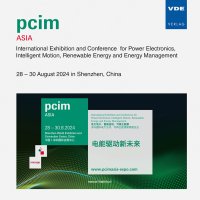Aging Behavior at 85 Deg Celsius and 85 % RH of High Heat Capacitors for DC-Link Applications
Conference: PCIM Asia 2024 - International Exhibition and Conference for Power Electronics, Intelligent Motion, Renewable Energy and Energy Management
08/28/2024 - 08/30/2024 at Shenzhen, China
doi:10.30420/566414097
Proceedings: PCIM Asia 2024
Pages: 5Language: englishTyp: PDF
Authors:
Bastawros, Adel; Motohashi, Tetsuya; Nakashima, Koichi; Sugawara, Takamune; Katsuta, Hisao; Zhou, Yuan
Abstract:
Aging behavior of new generation capacitors intended for use at high temperatures in AC-DC inverter applications have been evaluated under damp heat conditions (85deg C and 85 percent relative humidity (RH)) and applied voltage for a minimum of 1000 hours of aging. Two capacitor designs were tested, using 3micrometer and 5micrometer ELCRES(TM) HTV150A high-heat films, respectively. Test voltages were 0, 300 and 500 volts for the capacitors made with 3micrometer film and 0, 500 and 800 volts for the capacitors made with 5micrometer film. Capacitance change (DeltaC), dissipation losses (tan δ) and insulation resistance (IR) were tracked as indicators of aging performance. For both designs, DeltaC, tan δ and IR showed stable response with little or no change over the 1000-hour test duration required by industry standards. Tan δ and IR were independent of the applied voltage level. The change in capacitance (DeltaC) showed a slight increase (gain) of 1 to 2 percent with applied voltage. Damp heat aging was extended beyond industry requirement to reach 2000 hours for capacitors made with 5micrometer film and 1750 hours for capacitors made with 3micrometer film; DeltaC, tan δ and IR remained acceptable. Meeting industry requirements for damp heat performance on the component level increases the confidence in employing the high heat capacitors in incumbent and new AC-DC inverter designs for the DC-Link in electric vehicles.


